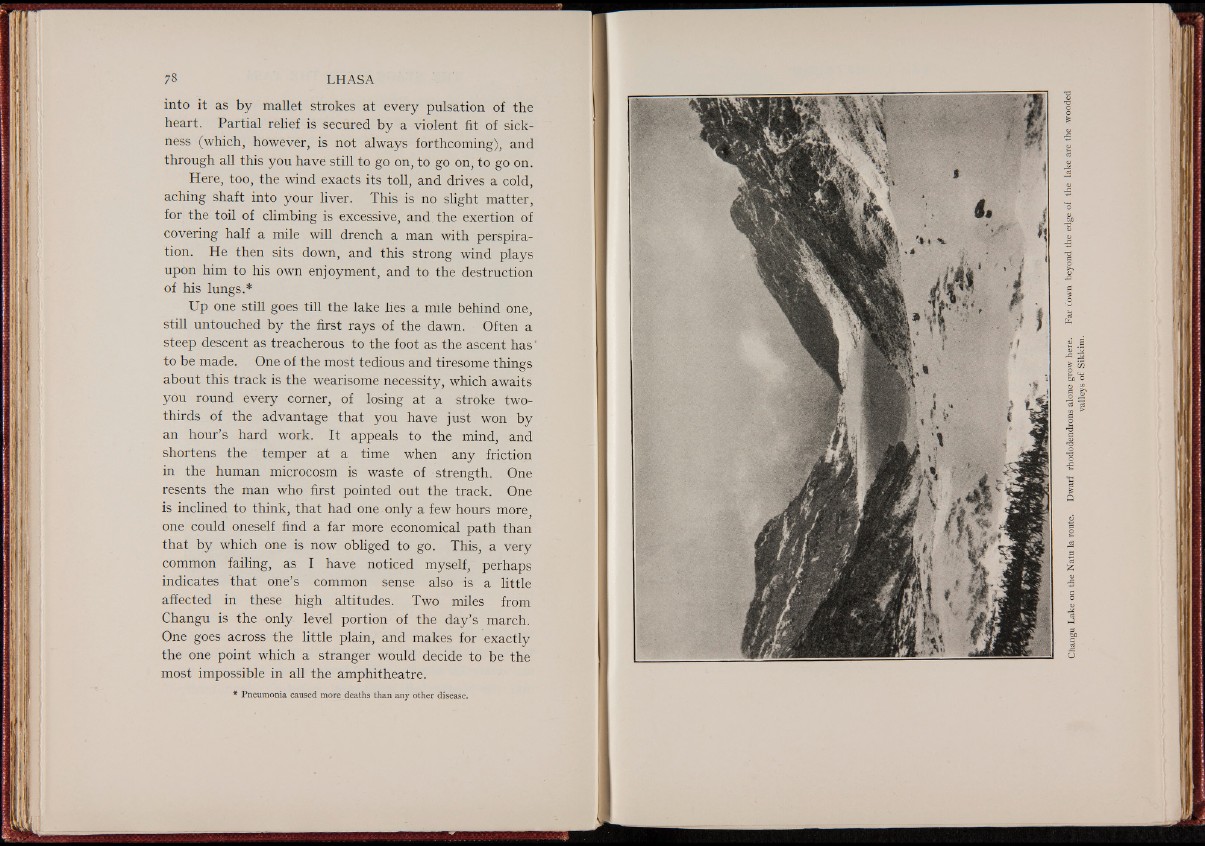
into it as by mallet strokes at every pulsation of the
heart. Partial relief is secured by a violent fit of sickness
(which, however, is not always forthcoming), and
through all this you have still to go on, to go on, to go on.
Here, too, the wind exacts its toll, and drives a cold,
aching shaft into your liver. This is no slight matter,
for the toil of climbing is excessive, and the exertion of
covering half a mile will drench a man with perspiration.
He then sits down, and this strong wind plays
upon him to his own enjoyment, and to the destruction
of his lungs.*
Up one still goes till the lake lies a mile behind one,
still untouched by the first rays of the dawn. Often a
steep descent as treacherous to the foot as the ascent has'
to be made. One of the most tedious and tiresome things
about this track is the wearisome necessity, which awaits
you round every corner, of losing at a stroke two-
thirds of the advantage that you have just won by
an hour’s hard work. It appeals to the mind, and
shortens the temper at a time when any friction
in the human microcosm is waste of strength. One
resents the man who first pointed out the track. One
is inclined to think, that had one only a few hours more,
one could oneself find a far more economical path than
that by which one is now obliged to go. This, a very
common failing, as I have noticed myself, perhaps
indicates that one’s common sense also is a little
affected in these high altitudes. Two miles from
Changu is the only level portion of the day’s march.
One goes across the little plain, and makes for exactly
the one point which a stranger would decide to be the
most impossible in all the amphitheatre.
* Pneumonia caused more deaths than any other disease.